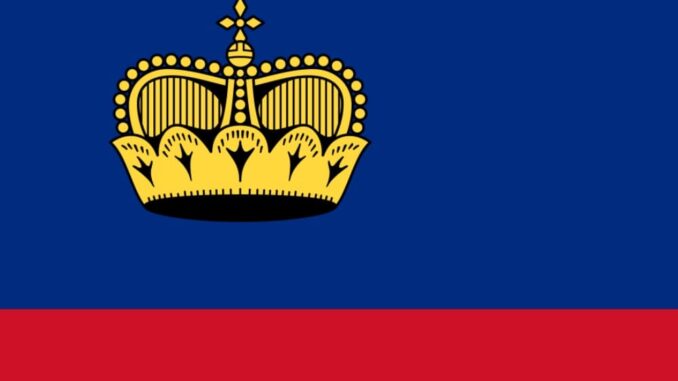
In April of last year, the Handelsblatt, among others, reported on the gaming industry in Liechtenstein with the headline “From tax paradise to gambling den”. This has developed impressively, especially in the past four years. New gambling temples open here at ever shorter intervals. As the local newspaper “Vaterland” reports, it is currently about the opening of another casino. And that’s not all: other projects are already in the planning and development phase. The density of slot machines, poker and roulette tables in the Principality is already greater than in Monte Carlo or Las Vegas.
Liechtenstein: discovered financial attractiveness for yourself
It seems as if the Principality of Liechtenstein has suddenly discovered the cultural and financial attractiveness of the land-based gaming sector for itself in recent years. There is no other way of explaining the fact that more and more casinos are opening despite the small number of inhabitants. There are currently only 39,000 people living in Liechtenstein. When the sixth casino starts operations, there is already an average of one casino for a little more than 6,000 Liechtenstein residents. That is a higher “gambling density” than in the casino metropolis Las Vegas. It was only in October that we asked ourselves in an article whether Las Vegas is approaching the end of the gambling era.
However, many a resident was not very pleased with the omnipresent casinos. Sometimes residents even went to court, as in the case of the casino in tranquil Balzers (approx. 4,600 residents). However, there is no question that each new gambling temple brings in a lot of money for the principality. So there should be one or the other proponent of the current development on the land-based gaming market.
Liechtenstein lies on the Rhine in the four-country corner with Germany, Switzerland and Austria. Among other things, the location has high purchasing power, which also benefits the gaming sector. The Principality of Liechtenstein is not only the sixth smallest state in the world, but also the smallest state in the German-speaking area with just under 39,000 inhabitants. The official language in Liechtenstein is German and the seat of government is in Vaduz.
Six casinos already open – more planned
There are currently six active casinos in the Principality with an area of just 160 square kilometers. These are Casino Admiral Ruggell, Casino Schaanwald Liechtenstein, Grand Casino Liechtenstein, Casino Admiral Triesen, Casino Bad Ragaz and Casino 96 in Balzers. Most recently, it became known that the casinos in Liechtenstein will be allowed to reopen after a lengthy lockdown from April 26, 2021, so that guest operations are currently back. Of course, strict hygiene and distance rules still apply.
According to the latest information from the Swiss newspaper “Tagblatt”, further casinos are planned in Liechtenstein. Among other things, another casino will soon be built in Eschner. More precisely, the planned location should be an old commercial or industrial area. Another casino opening is planned for the second quarter of this year. This is the Maximus Casino Schaan. However, according to the official casino website, there has not yet been an exact opening date.
For the principality itself, the gambling temples are of course an attractive source of income. In 2018 alone, the government generated 19 million Swiss francs in tax revenue from the gaming sector. However, at the time there were only two casinos in the country – now there are at least six.
There is even a tax incentive for casino operators in Liechtenstein. Here the casinos only have to pay between 17.5 and 40% of the gross gaming revenue to the principality. In Germany, however, the average is 60% and in Switzerland, for example, between 40 and 80%.
“From tax haven to gambling den”
The Handelsblatt reported last year on the increasing popularity of gambling venues in the Principality of Liechtenstein. After Liechtenstein successfully fought against its bad reputation as a “tax haven”, the gambling sector has now apparently been discovered for itself. In any case, the basic prerequisites could not be better: the casinos do little work, need just as little space and still generate millions of dollars in income. Most recently, the Süddeutsche (SZ) reported on the subject just a few days ago with the title “How a gambler’s paradise is created in the Liechtenstein tax haven”.
However, the population in Liechtenstein is now worried about the rapid development in the gaming market. It is true that the casinos are attracting large amounts of capital from the surrounding countries, but at the same time they are concerned about an increase in gambling addicts in the country. In addition, there is fear for the image of the principality, which could be damaged by the many gambling offers.
From Lindau on Lake Constance in Germany to Liechtenstein, for example, it is only 70 kilometers by car. It is almost 270 kilometers from Stuttgart and around 780 kilometers from Berlin.
Conclusion
It is impressive how fast the development of the land-based gaming market in Liechtenstein is progressing. More and more casinos are opening and so is the criticism from the population. There is concern about the image as well as the number of gambling addicts in the country. Of course, the development also has advantages: Tax revenues from the gaming sector are likely to skyrocket, at least after the corona pandemic, and reach a new record level. It will be interesting to see how many casinos will be built in Liechtenstein and whether the principality can live up to its image as the European Las Vegas in the long term.


Be the first to comment